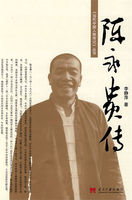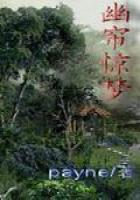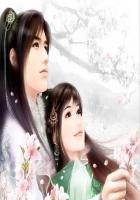"It was a fiery day of late June. Africa was bathed in a glare of light that hurt the eyes. I went into my cell and put on a pair of blue glasses and my wide straw hat, the hat in which I formerly used to work in the fields. When I came out my guest was standing on the garden path. He was swinging a stick in one hand. The other hand, which hung down by his side, was twitching nervously. In the glitter of the sun his face looked ghastly. In his eyes there seemed to be terrors watching without hope.
"'You are ready?' he said. 'Let us go.'
"We set off, walking quickly.
"'Movement--pace--sometimes that does a little good,' he said. 'If one can exhaust the body the mind sometimes lies almost still for a moment. If it would only lie still for ever.'
"I said nothing. I could say nothing. For my fever was surely as his fever.
"'Where are we going?' he asked when we reached the little house of the keeper of the gate by the cemetery.
"'We cannot walk in the sun,' I answered. 'Let us go into the eucalyptus woods.'
"The first Trappists had planted forests of eucalyptus to keep off the fever that sometimes comes in the African summer. We made our way along a tract of open land and came into a deep wood. Here we began to walk more slowly. The wood was empty of men. The hot silence was profound. He took off his white helmet and walked on, carrying it in his hand. Not till we were far in the forest did he speak. Then he said, 'Father, I cannot struggle on much longer.'
"He spoke abruptly, in a hard voice.
"'You must try to gain courage,' I said.
"'From where?' he exclaimed. 'No, no, don't say from God. If there is a God He hates me.'
"When he said that I felt as if my soul shuddered, hearing a frightful truth spoken about itself. My lips were dry. My heart seemed to shrivel up, but I made an effort and answered:
"'God hates no being whom He has created.'
"'How can you know? Almost every man, perhaps every living man hates someone. Why not--?'
"'To compare God with a man is blasphemous,' I answered.
"'Aren't we made in His image? Father, it's as I said--I can't struggle on much longer. I shall have to end it. I wish now--I often wish that I had yielded to my first impulse and killed her. What is she doing now? What is she doing now--at this moment?'
"He stood still and beat with his stick on the ground.
"'You don't know the infinite torture there is in knowing that, far away, she is still living that cursed life, that she is free to continue the acts of which her existence has been full. Every moment I am imagining--I am seeing--'
"He forced his stick deep into the ground.
"'If I had killed her,' he said in a low voice, 'at least I should know that she was sleeping--alone--there--there--under the earth. I should know that her body was dissolved into dust, that her lips could kiss no man, that her arms could never hold another as they have held me!'
"'Hush!' I said sternly. 'You deliberately torture yourself and me.'
He glanced up sharply.
"'You! What do you mean?'
"'I must not listen to such things,' I said. 'They are bad for you and for me.'
"'How can they be bad for you--a monk?'
"'Such talk is evil--evil for everyone.'
"'I'll be silent then. I'll go into the silence. I'll go soon.'
"I understood that he thought of putting an end to himself.
"'There are few men,' I said, speaking with deliberation, with effort, 'who do not feel at some period of life that all is over for them, that there is nothing to hope for, that happiness is a dream which will visit them no more.'
"'Have you ever felt like that? You speak of it calmly, but have you ever experienced it?'
"I hesitated. Then I said:
"'Yes.'
"'You, who have been a monk for so many years!'
"'Yes.'
"'Since you have been here?'
"'Yes, since then.'
"'And you would tell me that the feeling passed, that hope came again, and the dream as you call it?'
"'I would say that what has lived in a heart can die, as we who live in this world shall die.'
"'Ah, that--the sooner the better! But you are wrong. Sometimes a thing lives in the heart that cannot die so long as the heart beats.
Such is my passion, my torture. Don't you, a monk--don't dare to say to me that this love of mine could die.'
"'Don't you wish it to die?' I asked. 'You say it tortures you.'
"'Yes. But no--no--I don't wish it to die. I could never wish that.'
"I looked at him, I believe, with a deep astonishment.
"'Ah, you don't understand! ' he said. 'You don't understand. At all costs one must keep it--one's love. With it I am--as you see. But without it--man, without it, I should be nothing--no more than that.'
"He picked up a rotten leaf, held it to me, threw it down on the ground. I hardly looked at it. He had said to me: 'Man!' That word, thus said by him, seemed to me to mark the enormous change in me, to indicate that it was visible to the eyes of another, the heart of another. I had passed from the monk--the sexless being--to the man. He set me beside himself, spoke of me as if I were as himself. An intense excitement surged up in me. I think--I don't know what I should have said--done--but at that moment a boy, who acted as a servant at the monastery, came running towards us with a letter in his hand.
"'It is for Monsieur!' he said. 'It was left at the gate.'
"'A letter for me!' the stranger said.















